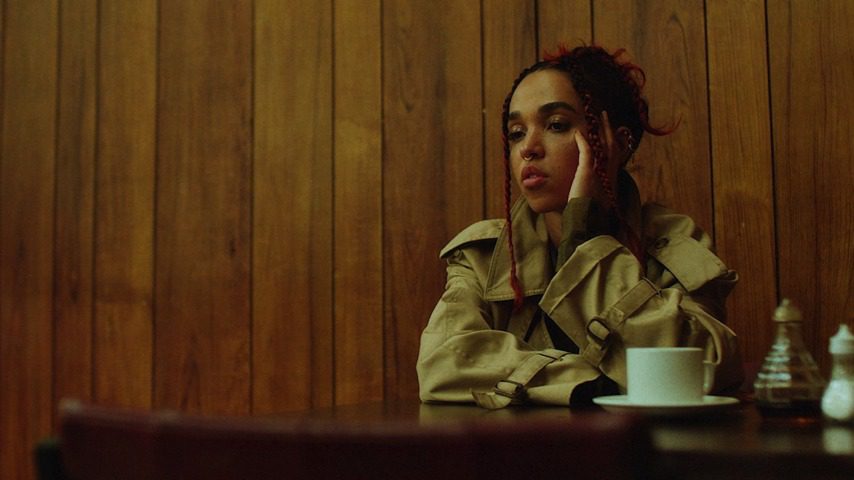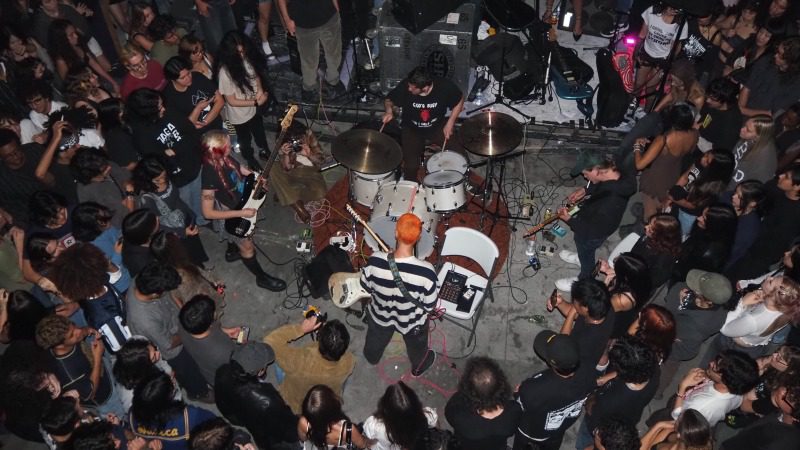FKA twigs (born Tahliah Debrett Barnett) filed a lawsuit in Los Angeles Superior Court on Friday that accuses actor Shia LaBeouf, whom she dated for nearly a year, of “‘relentless abuse,’ including sexual battery, assault and infliction of emotional distress,” as the New York Times reports.
The harrowing account outlines a pattern of manipulative and violent behavior, alleging that LaBeouf: isolated Barnett from her friends and colleagues, and disrupted her career ahead of the release of her latest album, Magdalene; once woke Barnett up by choking her in the middle of the night; knowingly gave her a sexually transmitted disease; commonly squeezed or grabbed Barnett so hard, he left bruises; and once “violently grabbed her” and locked her in a room as she was trying to pack up her things and leave him.
Another former girlfriend of LaBeouf’s, stylist Karolyn Pho, has also come forward, accusing the actor of abuses including drunkenly pinning her to a bed and head-butting her, drawing blood. Some of Pho’s claims are reportedly included in Barnett’s lawsuit. “So much goes into breaking down a man or woman to make them OK with a certain kind of treatment,” Pho told the Times.
In various statements to the Times, LaBeouf apologizes generally for his history of abusive and erratic behavior, but denies certain specific accusations, contending, “many of these allegations are not true.“
Barnett, 32, and LaBeouf, 34, met in 2018, her lawsuit recounts, when they worked together on Honey Boy, which LaBeouf wrote and starred in alongside Barnett, who was making her feature film acting debut. They began dating after finishing work on the film, but LaBeouf’s “over-the-top displays of affection” soon gave way to controlling, frightening behavior, as Barnett and Pho each allege, and the Times details:
In the lawsuit, Ms. Barnett and Ms. Pho said that Mr. LaBeouf did not like it if they spoke to or looked at male waiters; in an interview, Ms. Barnett said she learned to keep her eyes down when men spoke to her. She also stated in the suit that Mr. LaBeouf had rules about how many times a day she had to kiss and touch him, which he enforced with constant haranguing and criticism.
Mr. LaBeouf convinced Ms. Barnett to stay with him in Los Angeles, she said, rather than move back to London where she and her professional circle lived. It was a step toward her isolation, she said. And he would often say that her creative team used her, a message that eventually led her to doubt them.
But living with him became frightening, she said. The lawsuit says that he kept a loaded firearm by the bed and that she was scared to use the bathroom at night lest he mistake her for an intruder and shoot her. He didn’t let her wear clothing to bed, and would spin a trifling disagreement — over an artist she liked and he didn’t, for example — into an all-night fight, depriving her of sleep, the suit says.
Perhaps the most disturbing incident Barnett’s lawsuit alleges took place last Valentine’s Day, when she says LaBeouf took off his seatbelt while driving the two to L.A. and threatened to crash the car unless Barnett told him she loved him. After Barnett “begged to be let out of the car,” LaBeouf stopped at a gas station and assaulted her, per her lawsuit, screaming in her face and throwing her against the car before forcing her back into it.
“I’m not in any position to tell anyone how my behavior made them feel,” LaBeouf told the Times. “I have no excuses for my alcoholism or aggression, only rationalizations. I have been abusive to myself and everyone around me for years. I have a history of hurting the people closest to me. I’m ashamed of that history and am sorry to those I hurt. There is nothing else I can really say.”
The Times report provides lots of valuable context, including the observation that lawsuits like this one are relatively rare. In that regard, Barnett exhibits the kind of raw courage that has also characterized her art: “I’d like to be able to raise awareness on the tactics that abusers use to control you and take away your agency,” Barnett told the Times. “What I went through with Shia was the worst thing I’ve ever been through in the whole of my life. I don’t think people would ever think that it would happen to me. But I think that’s the thing. It can happen to anybody.”
Barnett said in her lawsuit that she will give “a significant portion” of any damages she may be awarded as a result of the case to various domestic-violence charities, providing other victims with the means she relied on to extricate herself from her situation.
You can (and should) read the entire Times report here.




